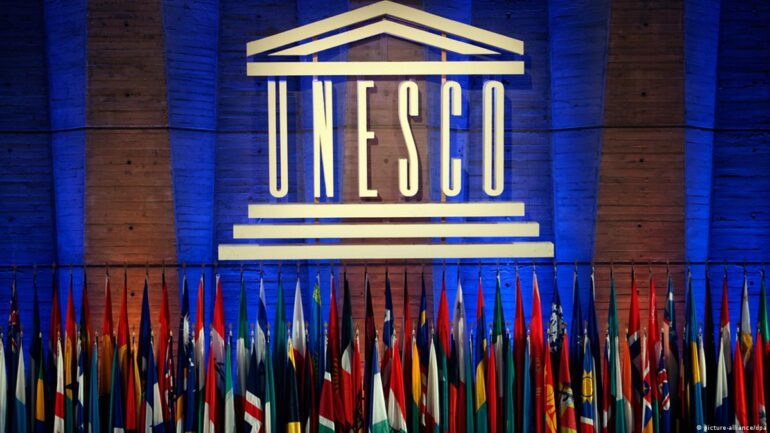TL;DR:
- UNESCO convened the first global meeting of Ministers of Education to discuss the opportunities, challenges, and risks posed by AI applications in education.
- Over 40 Ministers shared policy approaches and plan to integrate generative AI into education systems.
- Concerns were raised about adapting education systems to disruptions caused by generative AI, integrating it into curricula, and mitigating flaws such as errors and bias.
- Governments worldwide are formulating policy responses and refining national strategies on AI and data protection.
- A UNESCO survey revealed that less than 10% of schools and universities have policies on generative AI.
- Teachers play a crucial role in the new era of learning and require guidance and training.
- UNESCO is developing policy guidelines and AI competencies frameworks for education and research.
- The organization will launch these initiatives during Digital Learning Week in September 2023.
- UNESCO’s expertise in education and sciences has led to global reflections on the Future of Education and the establishment of a normative framework for AI ethics.
Main AI News:
In response to the rapid emergence of transformative generative AI tools, UNESCO convened the inaugural global gathering of Ministers of Education on Thursday. The purpose of the meeting was to delve into the immediate and far-reaching opportunities, challenges, and risks presented by AI applications in education systems. Over 40 Ministers congregated, pooling their policy approaches and plans to effectively integrate these cutting-edge tools into education. During the momentous online discussion on May 25, 2023, UNESCO unveiled a comprehensive roadmap on the intersection of generative AI and education, advocating for an open multistakeholder dialogue.
Generative AI, with its vast potential, ushers in novel horizons and formidable challenges for education. However, it is of paramount importance that we proactively seize control to ensure that the assimilation of new AI technologies occurs on our own terms. We bear the responsibility to prioritize safety, inclusion, diversity, transparency, and quality, as underscored in the UNESCO Recommendation on the Ethics of Artificial Intelligence, unanimously adopted by all Member States.
Throughout the ministerial discourse, several urgent challenges were underscored, prompting Ministers to share policy approaches. Concerns revolved around the need to adapt education systems to the rapid disruptions triggered by generative AI, integrating it seamlessly into curricula, teaching methodologies, and examinations. Moreover, mitigating the inherent flaws associated with these technologies, such as the potential for glaring errors and biased information, emerged as a focal point of the discussions.
The ministerial debate illuminated a global trend where governments worldwide are diligently crafting appropriate policy responses in this ever-evolving landscape. They are investing efforts in enhancing and refining national strategies pertaining to AI, data protection, and other regulatory frameworks.
A recent global survey conducted by UNESCO involving more than 450 schools and universities revealed a disconcerting statistic: fewer than 10% of educational institutions have established formal policies or guidance addressing the utilization of generative AI applications. This underscores the challenges institutions face in mounting an immediate response to the sudden advent of these potent generative AI tools capable of generating written and visual content.
The pivotal role played by teachers as facilitators in this new era of learning was duly recognized. However, it is crucial that teachers receive comprehensive guidance and training to effectively navigate these challenges.
UNESCO, with its commitment to steering the global discourse, will continue to engage policy-makers, EdTech partners, academia, and civil society. The organization is currently developing policy guidelines for the implementation of generative AI in education and research. Additionally, frameworks encompassing AI competencies for students and teachers in school education are being formulated. These groundbreaking initiatives will be officially launched during Digital Learning Week, slated to be held at UNESCO Headquarters in Paris from September 4 to 7, 2023.
Drawing upon its unique expertise and mandated responsibilities in education and the sciences, UNESCO has spearheaded a worldwide contemplation on the Future of Education in recent years. Moreover, the organization has achieved a monumental milestone by establishing the first-ever global normative framework for the ethics of artificial intelligence. This normative framework was unanimously adopted by all 193 Member States of UNESCO in November 2021.
Conlcusion:
The discussions and initiatives taken by UNESCO and the Ministers of Education highlight the growing importance of integrating generative AI into education. The low percentage of institutions with policies on AI indicates the need for immediate action and guidance to effectively incorporate these technologies. This presents significant opportunities for the market, particularly in the development of AI-powered educational tools, training programs for teachers, and policy consulting services. As the demand for ethical and inclusive AI solutions in education increases, businesses that can provide innovative, safe, and high-quality AI applications and services will find a thriving market awaiting them.

